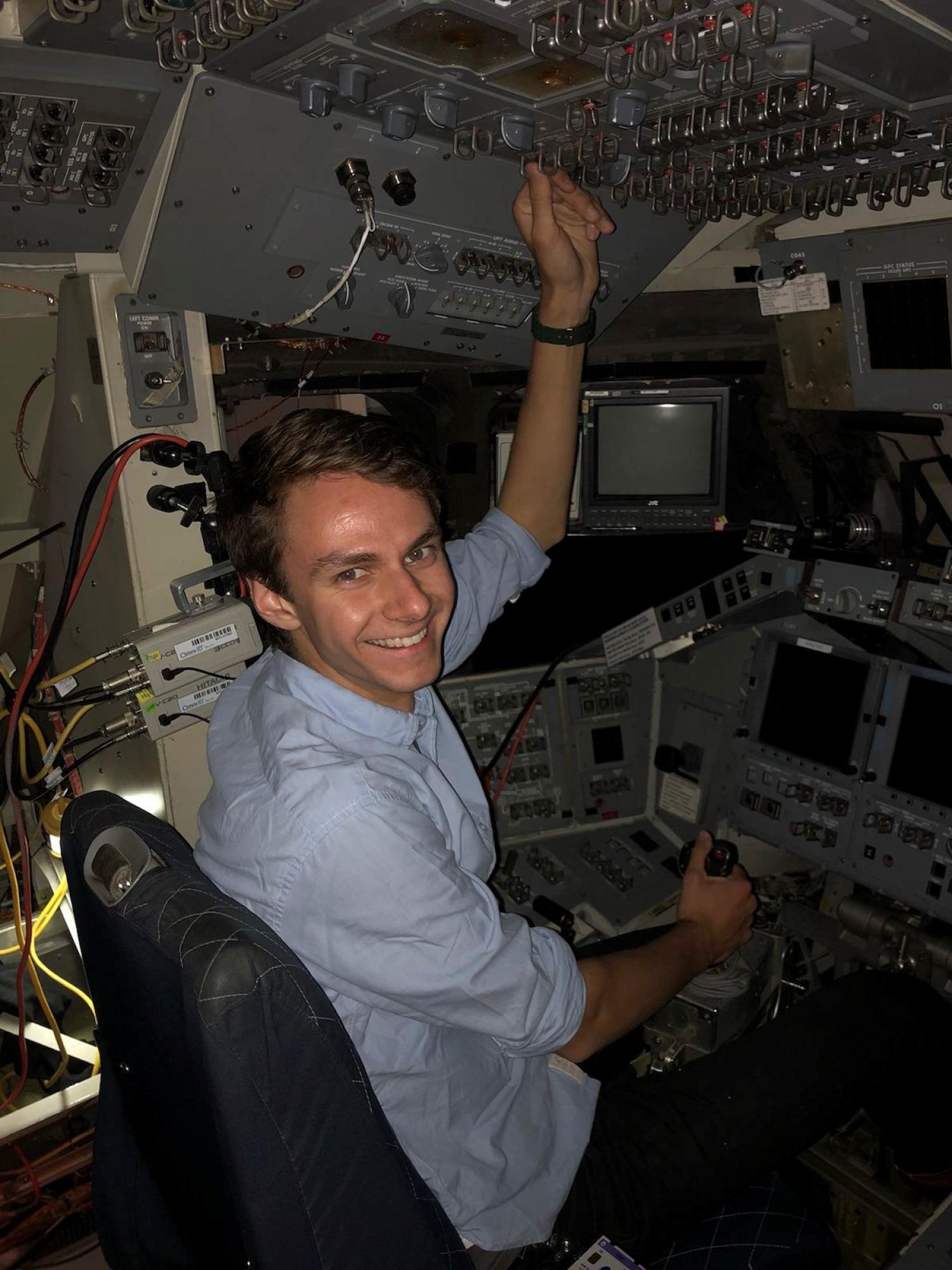Houston, we have an intern...

Manni inside a once functioning Space Shuttle mockup.
Name: Jonathan Manni
Major: 2nd Year Aerospace PhD Student
Hometown: Canton, Michigan
Internship: Orion Program, NASA Johnson Space Center (JSC) in Houston, TX.
What was your assignment at NASA?
I was in charge of developing a prototype for emergency backup attitude determination. Typically a number of different sensors on a spacecraft help ensure that the vehicle always knows its orientation in space, but in the improbable chance that multiple sensors fail, it’s nice to give the crew another way to figure out how they’re oriented in space.
In the day-to-day, I spent my time developing system requirements and operations, working out the necessary math, and coding up a working prototype. I’d typically spend my mornings working on my project and participating in conference calls with other NASA engineers before heading to check out what food trucks JSC was hosting for the day. Afternoons brought more coding and the occasional tour of mission control or the Neutral Buoyancy Laboratory, NASA’s huge pool with International Space Station mockups where astronauts train for upcoming missions.
What did you enjoy most about the internship experience?
Opportunities to attend seminars and hear perspectives from a variety of voices were one of the highlights of my summer. There was an afternoon when I had the chance along with other interns to meet and hear from Gene Kranz, famously known for his work as flight director for Apollo flights and perhaps most notably, Apollo 13.
Or the handful of occasions when I’d be walking back from a coffee break and see and nod at an astronaut walking past in a blue flight suit. I had a chance to attend a lecture with Astronaut and Navy Commander Victor Glover who shared valuable insights about the challenges of his job while offering advice to fellow interns regarding career and personal goals.
Manni standing in front of the Orion Ascent-Abort 2 flight test vehicle.
What was the toughest part of your experience?
It was both difficult and empowering, but I was given a fair amount of autonomy in working on my project. I had the opportunity to steer my project in whichever direction I felt necessary, but it also meant that I had responsibility to overcome challenges and to know when to ask for help. Surprises came every day in the form of bugs in my code. I’d have thought that I took care in what I was developing only to notice that I’d flipped a sign or calculated something wrong.
How has the internship impacted your future career plans?
The internship affirmed my excitement of working on a project that has a future in space. I’ve mostly been interested in working on robotic spaceflight, but working with human spaceflight experts and rubbing shoulders with astronauts this summer reminded me of the reasons why the notion of spaceflight is so intriguing.

